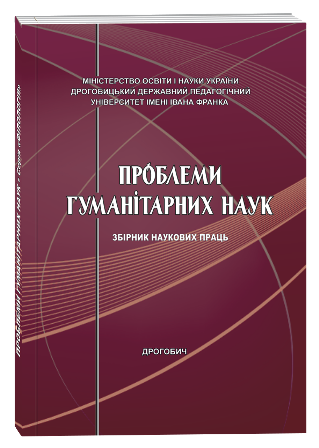COGNITIVE AND PRAGMATIC APPROACH TO THE STUDY OF THE LANGUAGE GAME PHENOMENON: THEORETICAL ASPECT
DOI:
https://doi.org/10.24919/2522-4557.2019.44.187359Keywords:
the language game; pragmatic effect; author’s intention; cognitive paradigm; coding; language paradoxAbstract
The article studies the functions of the language game, which are determined by the author’s intention and expressed in a particular textual organization of a discourse as a means of implication of pragmatic effect. It analyzes the difference in the understanding of the term «the language game» in modern linguistics, as well as some debatable approaches to differentiating the concepts of «the language game» and «the situational game». It proves that the language game phenomenon appears as a deviation from the normative use of a certain language unit, a deviation from language stereotypes, which connects the language game with a deviation from rules of pragmatic use of language resources.
References
Витгенштейн, Л. (1994). Философские исследования. Философские работы, 2, 77‒319.
Санников, В.З. (1999). Русский язык в зеркале языковой игры. Москва: Языки русской культуры.
Alexander, R.J. (1997). Aspects of Verbal Humour in English. Tübingen: Gunter Narr Verlag.
Crystal, D. (1998). Language Play. Harmondsworth: Penguin.
Jacobson, R. (1962). Linguistics and Poetics. Структурно-типологические исследования (с. 264‒266). Москва: Изд-во Академии наук СССР.
Milner, G.B. (1972). Homo Ridens: Towards a Semiotic Theory of Humor and Laughter. Semiotica, 5 (1), 1‒30.
Ritchie, G. (2004). The Linguistic Analysis of Jokes. London: Routledge.



